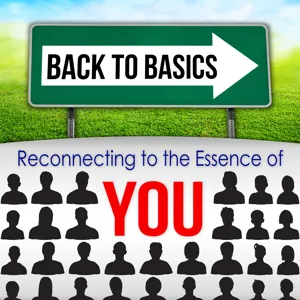Podcast Summary
COVID-19's Impact on the Brain: COVID-19 can cause significant brain damage including memory loss, thinking impairment, movement difficulties, and mood changes. Some damage may be permanent and increase Alzheimer's risk.
COVID-19 is not just a respiratory disease, but it can also cause significant damage to the brain. The BBC, as a trusted source of information, provides insight into this issue, sharing stories that inspire thought rather than dictating opinions. John Hamilton, NPR science correspondent, shares the story of David Williams, a COVID-19 survivor who experienced cognitive difficulties after being on a ventilator. Researchers have recently discovered that COVID-19 can affect memory, thinking, movement, and mood, with some damage being permanent and potentially increasing the risk of Alzheimer's disease. The focus on COVID-19 when it first emerged was primarily on respiratory health, but it's essential to recognize its impact on the brain as well.
COVID-19 can harm the brain through nerve cells: COVID-19 can directly damage the brain through nerve cells, causing neurological symptoms and potentially severe conditions
The SARS CoV 2 virus, which causes COVID-19, can directly harm the brain through the sensory nerve cells connected to it, leading to various neurological symptoms such as loss of smell, and potentially more severe conditions like strokes and brain damage. This is not a common side effect of viral infections but has been observed in previous epidemics and pandemics, including the 1918 flu. Despite the high number of COVID-19 cases and deaths, scientists have had limited access to brains of deceased patients to study the neurological effects of the virus, making it difficult to fully understand the extent of brain damage caused by COVID-19 until now.
Studying the Effects of COVID-19 on the Brain through Autopsies: COVID-19 can damage the brain by puncturing small blood vessels, causing leakage and potential immune response harm, leading to neurological symptoms like memory loss and depression.
While scientists have been able to study the brains of people who have died from COVID-19, the process of conducting autopsies on these individuals has been challenging due to the risk of virus transmission and limited availability of specialized tools. The research conducted on these brains has revealed that the virus may cause damage by puncturing small blood vessels in the brain, leading to leakage and potential collateral damage from the immune response. This damage can result in various neurological symptoms such as memory loss, planning difficulties, depression, and mood problems. It's important to note that the virus itself was not found in these damaged areas, suggesting that the immune response may be the primary cause of brain damage. Overall, this research highlights the importance of taking precautions to prevent contracting COVID-19, as the virus can have detrimental effects on the brain and other organs.
COVID-19's Impact on the Brain and Long-Term Health: COVID-19 can cause neurological issues, including autonomic problems, extreme fatigue, and potential long-term damage. Some recover quickly, while others struggle for months or years. Neurologists are studying potential increased risk of Alzheimer's. Vaccines protect the brain and body, but recovery may not be complete for some.
COVID-19 can cause various neurological issues, including autonomic problems, extreme fatigue, and potential long-term damage. Some people recover within weeks, while others struggle for months or even years. Neurologists are concerned that these patients may face an increased risk of Alzheimer's disease due to the immune system's reaction and leaky blood vessels. The Alzheimer's Association is collaborating with researchers worldwide to study these potential consequences. The good news is that vaccines protect the brain as well as the body from COVID-19, and some patients do recover. However, recovery may not be complete, and some individuals, like David Williams, who spent time on a ventilator, may continue to experience cognitive and physical challenges. It's important to remember that COVID-19's impact on the brain and body is complex and not limited to high-risk groups.
Long-term health consequences after COVID-19: COVID-19 survivors may face long-term health issues, highlighting the need for continued support and resources
Surviving COVID-19 does not guarantee a full recovery. David Williams' story serves as a reminder that even after the pandemic subsides, there may be a significant number of individuals, including those who had less severe cases, dealing with long-term health consequences. This underscores the importance of continued support and resources for those affected by the virus. Additionally, this episode was produced by NPR, and listeners are encouraged to tune in to Up First for the latest news and to check out The Bid for insights from BlackRock's thought leaders.




